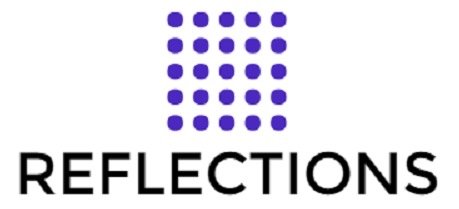HBCU MADE - The Value of Education
One of my favorite ways to discover new books is to scan the Ready Reads bookshelves at the downtown Kirkland Library. I’m not sure what the criteria are for selecting those books, but I frequently find topics and authors that interest me. That’s how I happened to pick up the book HBCU MADE, edited by Ayesha Rascoe. It caught my attention for several reasons:
1. Ayesha Rascoe is the Sunday morning host for Week-end Edition on NPR, a program I listen to for 2 hours on most Sundays, starting at 5 AM. I was curious to learn more about her.
2. When I donate to charities, I like to consider DEI values: Diversity, Equity and Inclusion. Because of that, I have sometimes made scholarship donations which target students of color, including students attending HBCU schools.
3. I once attended an HBCU (historically black college or university) myself (Fisk University in Nashville, TN), but only for a week. It was a very rewarding experience and gave me a lifelong interest in these institutions.
4. For several years I have been hoping to take a civil rights tour of the South. In anticipation of that travel, I have been reading as much material as I can about our civil rights history and American racial diversity.
5. The subheading of the book title is A Celebration of the Black College Experience. With so many depressing news headlines recently and so much sadness in reading about our civil rights history, a book promoted as a “Celebration” sounded like a fun diversion, especially since it is only 198 pages, putting it into the “easy-to-read” category. I’m a slow reader, so book length is always a factor for me to consider.
I can happily report that all my expectations were met and I can heartily recommend this book. I learned about Ayesha Rascoe in the book’s first chapter, which contains her own story. She grew up in Durham, North Carolina, and graduated from Howard University in Washington, D.C. She wanted to be a journalist and promptly signed up to work on the student-run newspaper, the Hilltop, starting her on the career she hoped for and has achieved.
HBCU institutions usually don’t have endowments as large as traditionally white schools. Reading about the experiences of former HBCU students made me realize the value to many young Blacks of spending four years in an environment where dark skin pigment is not a factor in social and educational experiences and where faculty take a strong interest in the lives of each student, beyond academic success. For anyone looking for a place to send charitable dollars, HBCU scholarships appear to be a good investment.
When I spent a week at Fisk University as a college Freshman, I knew very little about life in the South or HBCU institutions. Reading HBCU MADE gave me a better understanding of how many HBCU schools there are and how they appeal to a variety of educational interests. Several of the individual authors emphasize the great diversity found among the students they studied with. Diversity is found in family financial resources, countries and states of origin, religion, ethnicity, and aptitude for sports, music, dance and various academic fields. I now have a better understanding of the things I saw and heard at Fisk.
My 4-year degree is from a small Midwestern college. While my school was not an HBCU, it shared many characteristics spoken about in this book. Most students lived on campus and developed close relationships with other students and their professors. Professors took a personal interest in students. There was substantial diversity among the backgrounds of the students. The school actively helped students with their job or graduate school search. There are many alumni who have had impressive careers and continue to support the college and its students.
HBCU MADE reminded me how education, at a school which meets the needs of its students, is often a life-changing experience. At a time when some political and community leaders downplay the value of education and actively ridicule some highly respected universities, the essays of this book affirm the value of education, especially in developing professionals and leaders who can make substantial contributions to society.
The final chapter of the book is written by Oprah Winfrey, adapted from a commencement address she gave in 2023. As a high school student, she worked in her father’s store and listened to the news on the radio. She wanted to be an actress, but her family urged her to study something practical, so she majored in speech communications and drama, with a goal of teaching. A professor persuaded her to accept an offer to work part-time as an evening news anchor at a local TV station, a job she held throughout her college years. That’s how her career began, but due to a mix-up in credits she did not get her degree from Tennessee State University until years later. She says: “I am a very proud graduate of the only state-funded historically Black university in Tennessee.”
HBCU MADE, A Celebration of the Black College Experience, is fun and easy to read. The enthusiasm of its various authors in sharing their stories put a smile on my face and offered a reminder of how fortunate I was to attend Carleton College, which offered me the chance to spend a week at Fisk University.
P.S. Please consider subscribing to my blog - new posts are made about once a month. Click here to fill out the subscription form and be sure to check the box agreeing to accept my mail.

